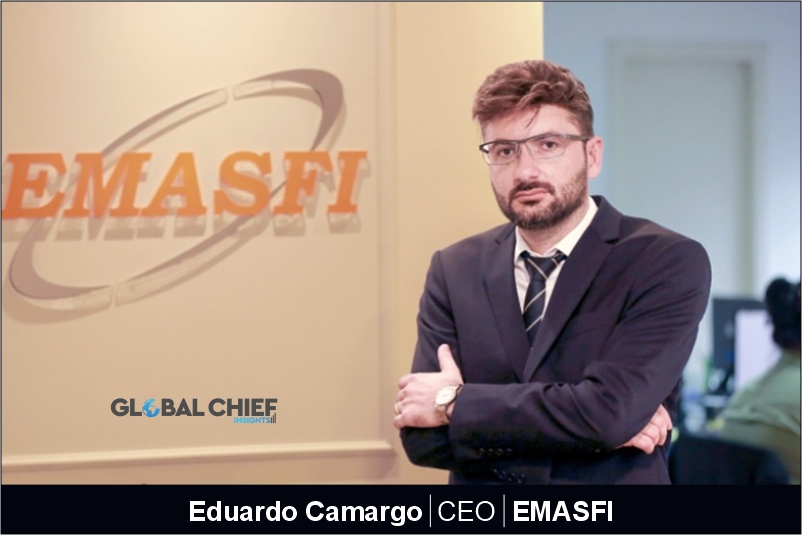CEGA Innovations: Transforming Patient Care and Ensuring Safety in Healthcare Settings


Enhancing Medical Technologies for Safer Workplaces and Improved Patient Outcomes!
Revolutionizing an industry requires a combination of innovation, dedication, and a forward-thinking approach. In recent years, one company has been making waves in the healthcare sector with its unwavering commitment to enhancing technologies while keeping them affordable. With a vision to transform the way healthcare is delivered, this company is poised to reshape the landscape of the industry.
CEGA Innovations is a firm believer in the transformative power of enhanced and affordable technologies in the healthcare sector. With a strong focus on improving patient care and creating a safer workplace for medical professionals, CEGA is dedicated to bringing innovative products and services to market that assist hospitals, clinics, and ambulatory care centers in meeting compliance requirements for safe patient handling.
Under its celer Division, it specializes in direct sourcing, offering cost savings compared to traditionally channeled products. With a commitment to providing hospitals with control, transparency, and resiliency, Celer empowers healthcare institutions to make informed decisions and optimize their operations.
With CEO Aaron Emerson in charge, CEGA set out on a mission to create solutions that put staff safety first after realizing that hospital employees have greater rates of worker injuries than employees in any other sector. By doing this, scientists hope to improve patient outcomes by lowering the chances of infections, bleeding, and skin damage. The knowledgeable staff at CEGA is well-versed in safe patient management, with a focus on Air Lateral Transfer (ALT) devices in particular.
Join us as we explore CEGA’s groundbreaking initiatives for enhancing patient care, improving workplace safety, and driving compliance in the medical industry!
College Roommates Turned Co-founders
CEGA’s co-founders, Aaron J Emerson, Esq. (CEO) and Dr. Ty White, MD (Chief Medical Officer), were college roommates who reconnected in 2012 over dinner. Aaron, a litigation partner in a law firm, and Ty, a partner in a private anesthesiologist group, had a lighthearted discussion about the challenges they faced in their respective professions. One of the topics that came up was Ty’s struggle with moving patients from the operating room table to the recovery bed after surgery. They discovered that according to the National Health and Nutrition Examination Survey (NHANES) data from 2017–2018, around 30.7% of adults are overweight, 42.4% have obesity, and 9.2% have severe obesity. These numbers are even higher in a hospital setting, where the patient population tends to have a higher percentage of overweight and obese individuals due to their health conditions.
Meet the Leader
Aaron J Emerson serves as the CEO of CEGA Innovations. Previously, he worked as a litigation attorney specializing in complex commercial disputes and risk advice. Before entering the legal field, Aaron pursued research and academic interests in neuroscience at the University of South Dakota and Creighton University School of Medicine. Additionally, he conducted studies on kidney ischemia at University Physicians and explored the cardiovascular system at the University of Nebraska Medical Center.
Aaron has been recognized as a published author and co-author in reputable scientific journals such as Behavioral Brain Research, Brain Research Bulletin, Neuroscience Abstracts, Society of Neuroscience Abstracts, and General Comparative Endocrinology. He holds a Bachelor of Science degree in Biology, a Master of Science degree in Biology, and a Master of Arts degree from the University of South Dakota. Furthermore, Aaron obtained his Juris Doctorate from the University of South Dakota School of Law (now known as the Knudson School of Law).
Decoding Product Selection
CEGA’s initial product introduced to the market was MUV, a device specifically designed to transport supine patients from one surface to another. The name itself, pronounced “Move,” emphasizes the device’s function of facilitating patient movement. MUV was created to reduce the physical strain on care providers by eliminating a significant portion of the load involved in pulling patients across surfaces.
Building upon the success of MUV, CEGA then introduced their subsequent product, REMUV, which focuses on the ability to remove the device from underneath patients without direct contact. The name, pronounced “Remove,” highlights this unique feature, which minimizes the risk of adverse incidents for both patients and staff. In addition to this benefit, REMUV also plays a vital role in reducing the chances of bleeding and infection in operating rooms and procedure-based settings. As the sole device of its kind on the market, REMUV promotes better patient outcomes by mitigating these risks.
Mass Adoption
CEGA has made a significant investment of over $1 million in procuring its own equipment and specialized machinery. This strategic move allows the company to maintain control over both cost and quality. Unlike many other companies that rely on traditional contract manufacturing, CEGA has established a fruitful partnership with a manufacturing organization for the past decade. This collaboration enables CEGA to manufacture its products in a dedicated location, specifically tailored to meet their requirements. This unique combination of ownership and partnership provides CEGA with remarkable flexibility in evaluating fixed costs, indirect expenses, and other factors crucial for efficient scaling.
Amazing New Services
In 2020, the American Hospital Association (AHA) estimated that hospitals experienced financial losses amounting to at least $323.1 billion. With the pandemic persisting into 2021, a report by Kaufman Hall projected that hospitals and health systems would encounter additional losses ranging from $53 billion to $122 billion in 2021, and these losses would continue into 2022. The losses in 2022 are expected to surpass those witnessed in 2021.
While the primary cost pressures in 2022 were related to employment and contract employment, the escalating costs of medical supplies, goods, and pass-throughs resulting from increased raw materials and transportation expenses have further contributed to the severe budgetary crises faced by many hospitals. This is where CEGA’s CELER program becomes relevant. By empowering hospitals, the CELER program restores control and access to information in the medical supply procurement process.
Exciting Journey Ahead
Hospitals in the US have long sought ways to reduce their medical supply costs. To address this challenge, various strategies have been implemented, including the establishment of group purchasing organizations (GPOs), aggregated healthcare alliances, coordinated buying alliance programs, and limited third-party services. Among these approaches, GPOs have proven to be the most successful in setting buying standards and identifying vendors with competitive prices.
However, the lack of transparency in GPO pricing, the inclusion of multiple cost layers, limited control over resilience planning, and restricted distributor options have been prevalent issues. Moreover, the COVID-19 pandemic has necessitated the need for innovation in the healthcare industry. One major factor that contributes to inflated costs is the overhead, commissions, and channel fees associated with purchasing products through general distributors, local distributors, or GPOs.
To address this concern, CEGA has developed a transparency platform for hospital supplies that are sourced directly. This platform takes into account various costs such as shipping, duty rates, customs processing fees, freight, unloading, palletization, pallet wrapping, local warehousing, and pick-and-pack fees. Furthermore, CEGA ensures that its service margins are communicated to customers.
In comparison to traditional distributor channels, hospitals generally pay between 2 and 5 times more. However, by utilizing CEGA’s CELER program, hospitals can achieve significant cost savings. Adapting to this program may require stakeholders to adjust their approach to order quantities, safety stock, and payment terms. Nevertheless, CELER customers have full control over the entire process, avoiding any surprises and ultimately positively impacting their bottom lines.




